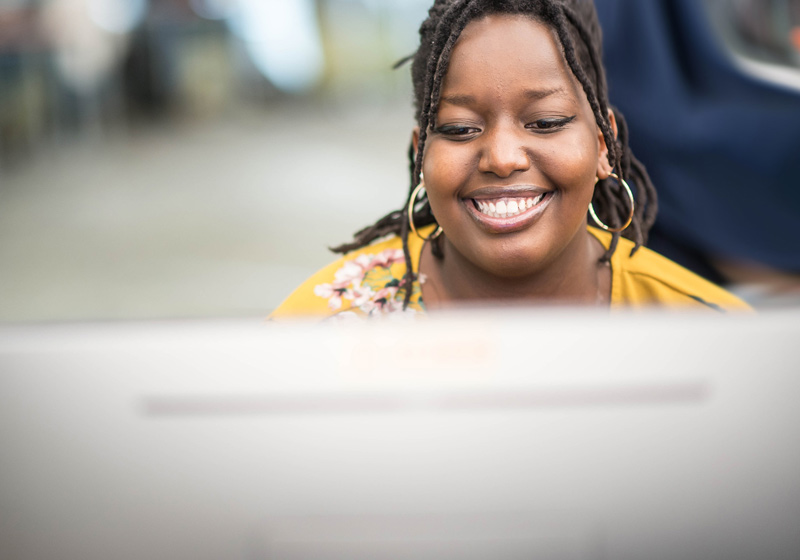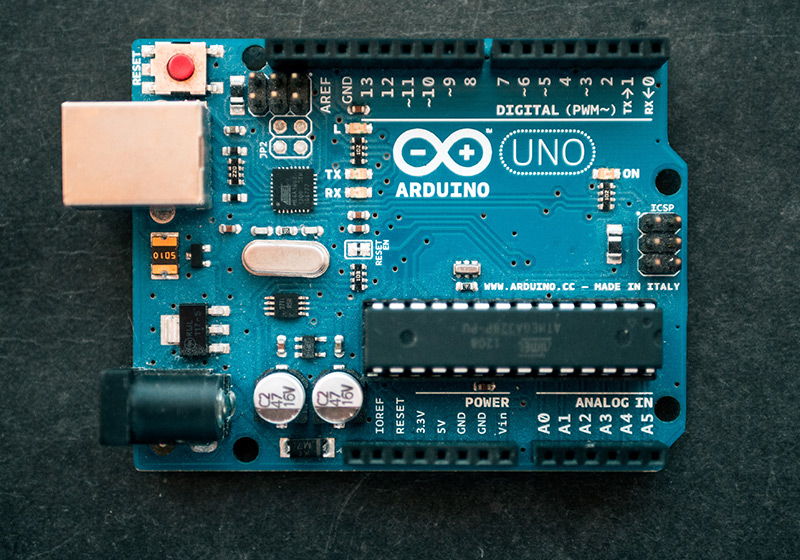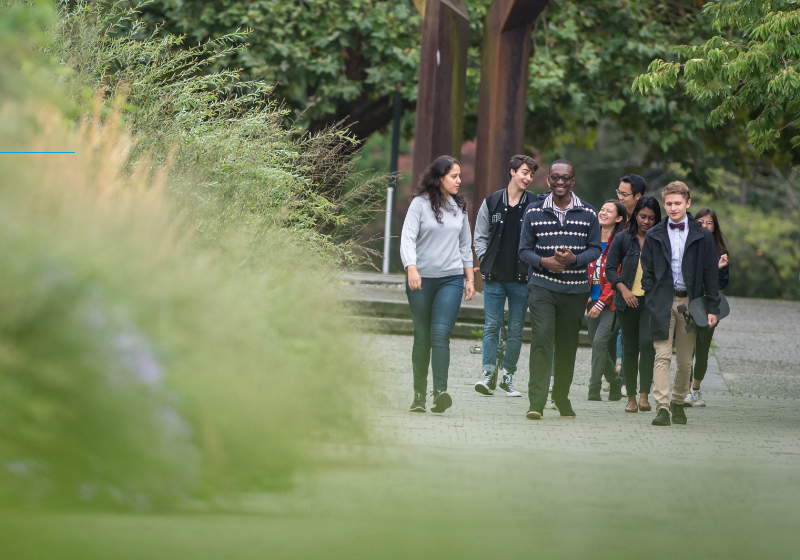
Sharing community values from a distance

How do you share knowledge online when your course is centered around a specific place? What if this place is an archipelago located at the edge of the world and internationally recognized for its beauty and environment?
To answer these questions, members of the Haida Gwaii Institute (HGI) took it upon themselves to bring the island life to the screen the only way they know how: as a united, passionate, and respectful community.
When the island is the classroom, and the community the teacher
In many aspects, Haida Gwaii is a place like no other. Thanks to the uniqueness of its environment, the islands have become an ideal location to live, learn and be part of a community. Since 2010, and its first semester in Natural Resource Studies as the Haida Gwaii Higher Education Society, the islands and HGI have also been a place for experiential and transformative learning opportunities – one that has attracted over 350 students from Haida Gwaii itself, across Canada and around the world.
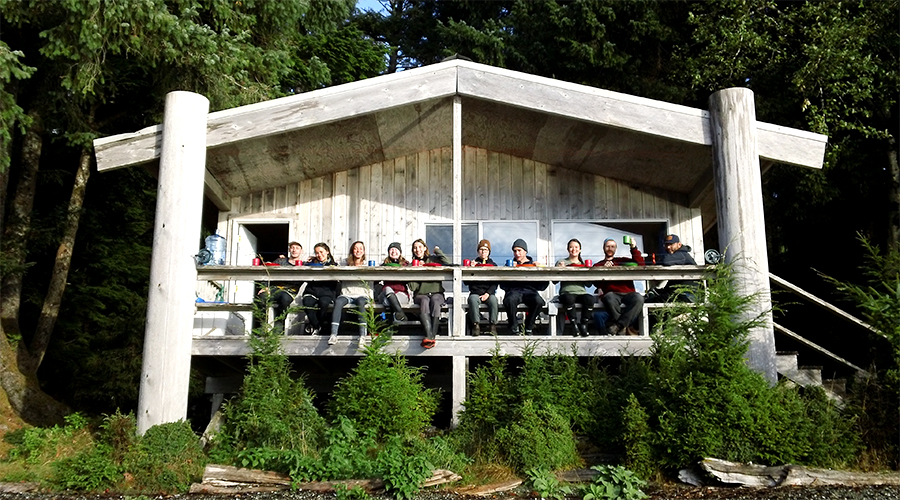
For Carrie-Anne Vanderhoop, Indigenous and community initiatives manager at HGI, the learning experience extends far beyond the institute’s walls. She explains, “our classroom is Haida Gwaii. From the beginning, it was really important for us to be working with and for the community, while making sure that its values are reflected and translated into our programs.” Values such as respect for the environment, reciprocity, giving back, and, most importantly, care for the local community are the backbone of the HGI experience.
“The relationships that are established and the knowledge that is exchanged is educational but also relational,” explains Laura Bishop, program coordinator at HGI. “It is a really important part of our programs. We work closely with all the communities in Haida Gwaii and try to be inclusive of a diversity of perspectives because we understand that there is value in them.”
Transforming the pedagogical model
These values were put to the test when HGI had to transition its program for online delivery in response to the current health situation. Before the transition, 20 to 24 students would travel to Haida Gwaii for an entire semester. During their courses, students would study the same topic for three weeks, spending all day either in the classroom or out in the field, while being immersed in the community as part of their learning experience before moving on to the next one. “The three-week course delivery model is very much about time management and assessing students’ ability to keep up with the readings, while developing interpersonal relationships with one another and the community,” notes HGI instructor Jasḵwaan Bedard.
This educational approach being impossible this time around, the HGI team had to redesign courses that translate well into the online environment. As Carrie Anne explains, “when we got started, we asked ourselves how to get the community involved and how to ground and infuse our courses in Haida Gwaii despite teaching online.” For them, the answers were to design courses together, pivot their pedagogical model to semester-based courses, and reach out to the Centre for Teaching, Learning and Technology (CTLT) for help with the transition.
For several months, the instructors, the HGI team and one of the CTLT’s educational consultants, Hailan Chen, worked together to ensure that learning objectives would be clearly articulated from the start of the course, and discuss the many details and implications of teaching online for an entire semester. “The most challenging aspect was that the instructors were pretty new to online teaching,” remembers Hailan, “so we helped them identify their priorities and the learning outcomes that could be measured through group work and one-on-one consultations.”
“Carrie Anne and Hailan were so key in this process,” echoes instructor Dr. Michele-Lee Moore, who ended up co-teaching her “Introduction to Resilience Theory in Community” course online with instructor Dr. Dan McCarthy. “It was a much richer learning experience for our students! This collaborative approach to course design was extremely helpful.”
For Jasḵwaan, who taught “Re-storying History: Indigenous Perspectives,” the updated schedule meant more time for students to become familiar with the material. “With a three-week program, some students were still digesting things from the week before as we moved along to new material the next week.”
Another unexpected benefit of this transition for HGI was the diversification of their audience, particularly from local students and working professionals who could attend the synchronous and asynchronous sessions thanks to the new format.
A prevailing sense of community
Looking back at the past year and to this summer semester taught online, the team is happy that the sense of nature and community that lies at the heart of Haida Gwaii prevailed, despite the circumstances. “We tried to take our experiential program and translate it through pictures and videos, integrating some of our community educators and our field trips into our digital classrooms,” explains Laura. “This is something we really wanted to make sure was part of the experiences we wanted to share, giving people the opportunity to see Haida Gwaii, at least on screen.”
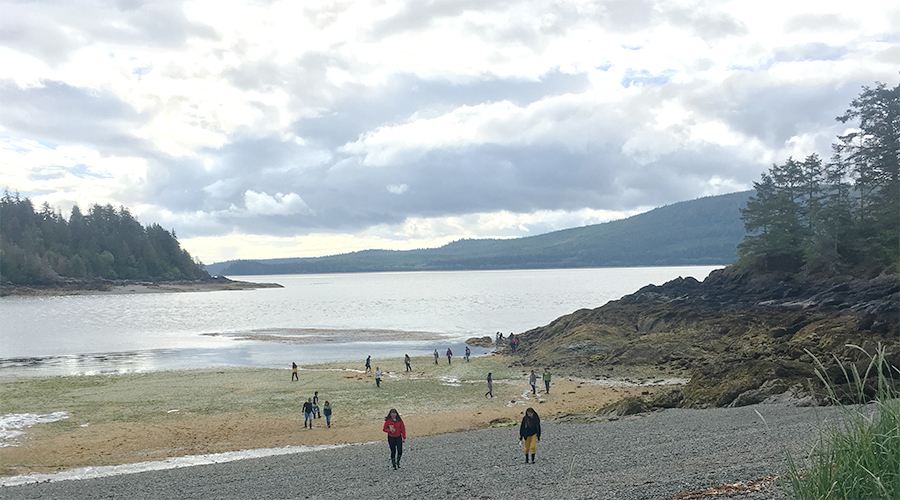
More importantly, the team was thrilled to keep the community aspect of HGI alive and connected on both sides of the screen. So much that, when it is safe to do so, students living on Haida Gwaii have extended an invitation to their classmates from away to come and meet everyone in person. “We had a wonderful and diverse group of students who joined us in the last two semesters, with students ranging from their late teens to retired grandmas,” reflects Laura. For Jasḵwaan, teamwork was the key to such a positive experience for students. “I feel like we were able to create a community online, and I credit the whole team for making it happen, from our community of educators, to guest presenters, to Hailan’s guidance.”
“The community we created on Zoom was very strong,” confirms Michele-Lee. “Students obviously did not get the place-based experiential learning – and recognized that it was different – yet the community was woven throughout. Students developed lasting relationships and are still in touch with Dan and I.”
While this experience was, and continues to be, a way for the HGI team to share their knowledge and values from a distance, everybody looks forward to meeting students again in person, “the most ideal way to teach,” explains Jasḵwaan. The team learned a lot and hopes to keep using a community approach to course design in the future.
HGI members are not the only ones to long for in-person interactions with students. “Our communities love having students here on the islands, and many members said that they miss seeing them,” concludes Laura. Given the breathtaking beauty of Haida Gwaii, the amazing experiences students get to live there and the passionate community they get to learn from, one can be certain that the feeling is mutual.
Learn more about the Guiding Principles for Online Course Adaptations on UBC’s Keep Teaching website.
More stories
The transition to online: One year later
To introduce the series, Associate Provost, Teaching and Learning Dr. Simon Bates and Provost Office Fellows in Online Learning Dr. Catherine Rawn and Kieran Forde reflect on UBC’s transition to online teaching.
Bringing compassion to the online learning environment
In this story, learn how two members of the teaching and learning community relied on compassion and care to create memorable learning experiences for students.
Experiential lab learning: stories from a year of online teaching
In this story, three instructors from the Faculty of Science explain how they took the challenge of online teaching and turned it into an opportunity to experiment with learning.
Finding the human side of virtual teaching and learning
Like many, before 2020 Christine Evans had never taught online. Just two months later, she was championing the possibilities of digital spaces. She shares what she thinks changed for the better.
Bridging the accessibility gap through Universal Design for Learning
In this story, two instructors with previous experience with online teaching share their experience and tips on the key aspects to consider when implementing Universal Learning for Design (UDL) into a course.
Rewarding integrity: Changing the conversation on cheating
In this story, Dr. Laurie McNeill shares the personal journey that took her from “busting cheaters” to a more educative approach to academic integrity.

